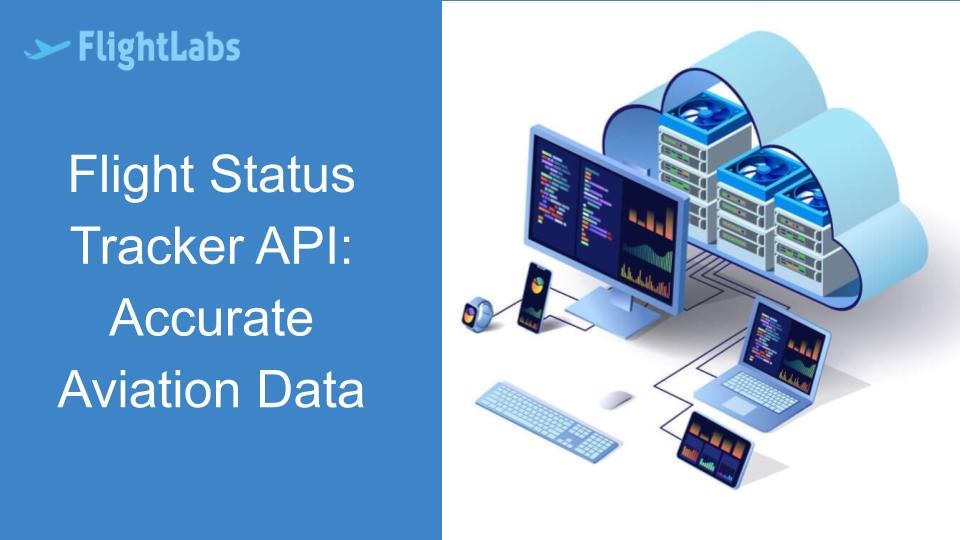Flight Status Tracker API: Accurate Aviation Data

Understanding the importance of real-time flight information is crucial in today's fast-paced aviation industry. Airlines, passengers, and aviation enthusiasts rely on accurate data to track flights, plan journeys, and stay updated with flight statuses. In this blog post, we'll delve into the significance of a Flight Status Tracker API in providing precise and real-time aviation data.
The Need for Accurate Flight Data:
Accurate flight data is the backbone of efficient air travel operations. Airlines use it to monitor flight schedules, manage delays, and communicate timely updates to passengers. Passengers rely on accurate data to plan their trips, track flights, and make informed decisions about their journeys. A reliable Flight Status Tracker API bridges this gap by offering up-to-date and precise information.
Real-Time Updates and Notifications:
One of the key benefits of a Flight Status Tracker API is its ability to provide real-time updates and notifications. Whether it's a departure delay, gate change, or arrival time update, users can receive instant notifications to stay informed about their flights. This real-time functionality enhances the overall travel experience and reduces uncertainties for both airlines and passengers.
Enhanced Passenger Experience:
For airlines, providing accurate and real-time flight information translates into an enhanced passenger experience. Passengers can access updated flight statuses, gate information, and baggage details through airline apps or third-party platforms integrated with the Flight Status Tracker API. This level of transparency and reliability builds trust and loyalty among passengers.

Integration and Customization Options Usung FlightLabs
FlightLabs offer flexible integration options and customization capabilities. Airlines and developers can tailor the API to suit their specific needs, whether it's integrating it into existing systems, creating custom dashboards, or adding unique features for users. This adaptability ensures that the API seamlessly fits into the airline's ecosystem.
Operational Efficiency for Airlines:
From an operational perspective, integrating a FlightLabs improves efficiency for airlines. It streamlines communication channels, reduces manual tasks, and ensures that all stakeholders have access to the latest flight data. This efficiency leads to smoother operations, better resource allocation, and ultimately, cost savings for airlines.
Global Coverage and Data Accuracy:
Another advantage of a FlightLabs is its global coverage and data accuracy. It aggregates data from multiple sources, including airlines, airports, and air traffic control systems, to provide comprehensive and reliable flight information. This global reach ensures that users can track flights worldwide with confidence.
Data Analytics and Insights:
Beyond real-time updates, a FlightLabs also offers valuable data analytics and insights. Airlines can analyze trends, predict flight disruptions, and optimize their operations based on historical and real-time data. This data-driven approach enhances decision-making and strategic planning for airlines.

Conclusion:
In conclusion, a FlightLabs plays a pivotal role in delivering accurate and real-time aviation data to airlines, passengers, and aviation enthusiasts. Its ability to provide real-time updates, enhance the passenger experience, improve operational efficiency, offer customization options, ensure global coverage, and provide valuable data analytics makes it a valuable asset in the aviation industry. Embracing such technological solutions not only improves the overall travel experience but also contributes to a more efficient and connected aviation ecosystem.